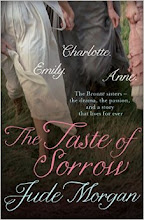 Although I will offer brief criticism of this short novel, I feel I must make it clear from the outset that this is one of the most powerful fictional stories of war I have read, and is a unique and masterful work. William - An Englishman is both a love letter to the ordinary man, and a gently sarcastic criticism of him. It is also a tirade, a furious, heartbreaking account of the futility, not just of war, but of life itself, and of war when it becomes one's life.
Although I will offer brief criticism of this short novel, I feel I must make it clear from the outset that this is one of the most powerful fictional stories of war I have read, and is a unique and masterful work. William - An Englishman is both a love letter to the ordinary man, and a gently sarcastic criticism of him. It is also a tirade, a furious, heartbreaking account of the futility, not just of war, but of life itself, and of war when it becomes one's life.The style of Persephone Book No.1 is a little hard to get into; an omniscient narrator tells us what to think about William Tully rather than letting us form our own opinions by listening to his conversation or assessing his actions. Indeed, there is very little dialogue at all by which we may see a man's mind at work. As a result, the first section of the book - it falls into three distinct parts - is almost Brechtian in its didacticism; it forces one to stand back and observe the foolishness of a certain breed of political activist, a type whom I recognise as still very much in existence today. This 'type' is more concerned with the thrill of rebellion, the joy of swimming against the flow, than they are with reaching the goal toward which they aim. And it is this aspect of William and his new wife Griselda that Cicely Hamilton sends up, as their all-consuming battles for pacifist, socialist and women's rights excludes their awareness of the growing threat of war, to their own fatal cost.
Written in France "in a tent within sound of guns and shells" (The Persephone Catalogue), William - An Englishman is one of the few novels of WWI to have been composed whilst the trenches were still full, active and bloody. It is clear that the author knew well of what she wrote - the detail in her descriptions of mangled bodies and the machinery that ripped them apart is distinctly un-feminine, a comment that would have been, I am sure, taken as the compliment it is meant. Hamilton did indeed work in a Hospital at the Front, and her horror at what she saw, and anger toward the idealistic Edwardian mind that allowed it to happen is evident.
By Chapter 4, one is entirely invested in William and Griselda. We are frustrated at their naivety; honeymooning away from the world in a cottage in the Belgian countryside, they mistake the distant rattle of gunfire for far-off thunder, and our dread begins to mount. With increasing dramatic irony, we urge them to look at the evidence before them and to see it for what it is. When they return from a walk in the hills to find their caretaker and her family fled, leaving only a handwritten note in a language they do not understand and can make nothing of, our own hindsight bids us shake them into awareness. Awareness does finally come, but at enormous cost. Their childish tantrums - a peculiarly English behaviour perhaps referencing the title - in the face of captivity by German troops tears at the reader's heart.
This is not one of Persephone's twee titles, and sits almost uncomfortably next to Misses Pettigrew and Buncle. It sits instead with Testament of Youth, as a tract on life ruined as much through the destruction of ideals and principles as by physical loss. Yet even in Testament of Youth, the men killed are heroes, decorated for bravery; Cicely Hamilton shows us men dying ingloriously, unmedalled, barely mourned, and forgotten.
She must also be one of the few writers of that lost generation with courage enough to address a largely unmentioned casualty of war; the female prisoner. The Edwardian gift for euphemism in fact adds to the horror of women at the mercy of "licentious soldiery"; the term itself, with 'soldier' at its core, almost accepts that rape is a consequence of war.
On one level, Hamilton appears to understand the appeal of active service, and presents many and diverse reasons for it. There are occasional shades of patriotism, even of Rupert Brooke's "corner of a foreign field": upon capture, William has a "vague, unreasoning, natural longing for home...It mattered not that the England he longed for was small, suburban, crowded and noisily pretentious; he craved for it in the face of death...He knew now that it was dreadful to die away from her."
William - An Englishman is far from being a cosy Sunday afternoon read. Instead, and more worthily, it is essential literature of the type that reminds us; it reminds us of what happened, of how it happened, that it should not happen, and that we must never forget those to whom it happened, no matter how insignificant and small their part may seem to have been.


3 comments:
Sounds like an emotional but necessary read. Great review!
I share your interesting perspectives.
Brilliant review - I'd love to read this. It's easy to wrap yourself up in comfort reading cotton wool with Persephone but it's good to sometimes let yourself be forced out of your confort zone with a book like this.
Lovely blog by the way!
Post a Comment